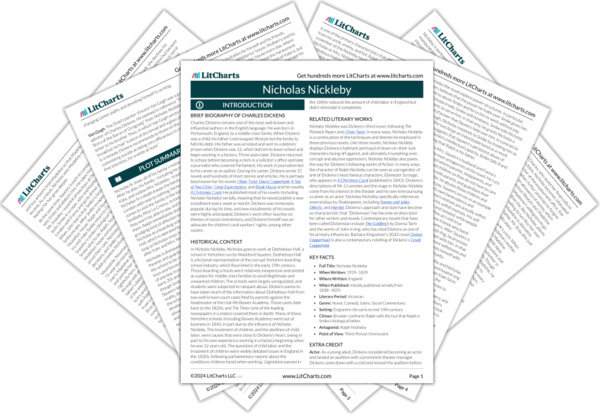Ralph’s intention to show Nicholas what power derived from wealth can do further clarifies what is at stake in the main conflict of the novel. Ralph represents the power that one gets from having money. Nicholas doesn’t have money; instead, he has family, virtue, and friendship. The novel pits those two characters against each other not just to see which of them will come out on top, but also to make an argument about which approach to life—virtue and friendship versus money and power—is the better one to pursue.
